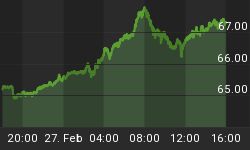If elections and COVID don’t rile the market enough, news that major global banks have been laundering huge amounts of money over the past 18 years just might.
According to documents obtained by BuzzFeed News and shared with the International Consortium of Investigative Journalists (ICIJ) and more than a hundred other media outlets, more than 2,000 files show more than $2 trillion in suspicious transactions flagged by internal compliance departments of financial institutions between 1999 and 2017.
“…Transactions that were flagged by financial institutions’ internal compliance officers as possible money laundering or other criminal activity — including $514 billion at JPMorgan and $1.3 trillion at Deutsche Bank,” ICIJ reported.
The leaked suspicious activity reports (SARs) were filed by banks and other financial firms with the U.S. Department of Treasury’s Financial Crimes Enforcement Network (FinCen).
While financial institutions are required to alert regulators when they detect activities that may be suspicious, such as money laundering or sanctions violations, the filing of an SAR does not require the bank to cease doing business with the client in question.
Also, the filings analyzed represent just 0.02% of more than 12 million suspicious activity reports filed during the mentioned period.
According to the files, despite promises to improve money laundering controls, JPMorgan Chase, HSBC, Barclays Bank, Standard Chartered Bank, Deutsche Bank and Bank of New York Mellon have continued to wave through suspect payments.
Germany’s largest lender, Deutsche Bank, facilitated more than half of the suspicious transactions mentioned in the files. The bank was already fined $258 million in 2015 for doing business with U.S.-sanctioned countries including Iran, Syria, Libya and Sudan.
According to BuzzFeed News, some of the secret records were requested as part of U.S. congressional investigations into Russian interference in the 2016 U.S. presidential election.
Among other transactions, JPMorgan also processed more than $50 million in payments for Paul Manafort, former campaign manager for US President Donald Trump. Manafort resigned in 2016 amid money-laundering and corruption allegations related to his work with a pro-Russian political party in Ukraine.
Among others, JPMorgan also moved more than $1 billion for the fugitive financier behind Malaysia’s high-profile 1MDB scandal.
Aware that journalists were preparing to publish the leaked data, earlier this month FinCEN condemned the disclosures in advance.
“…the unauthorized disclosure of SARs is a crime that can impact the national security of the United States, compromise law enforcement investigations, and threaten the safety and security of the institutions and individuals who file such reports,” FinCEN writes in the statement.
Even though BuzzFeed News has not revealed the source of the leak, in January this year, a former senior adviser at FinCEN, Natalie Mayflower Sours Edwards, pleaded guilty to leaking confidential banking information linked to key figures in the Russia probe.
Even though at the time President Trump portrayed her as a "deep state" agent, she appears to be his supporter.
This is not the first major leak of financial information in recent years but is surely the largest by the number of respectable financial institutions involved.
In 2016, some 11.5 million leaked documents from the Panama-based Mossack Fonseca law firm exposed wealthy people and politicians using offshore tax regimes to their benefit.
The files in the Panama Papers case showed how the law firm’s clients were able to launder money, dodge sanctions and avoid taxes. There are links to 12 current or former heads of state and government and 60 of their relatives in the leaked documents.
A data leak from a year before, the Swiss Leaks, revealed documents from private Swiss bank HSBC showing how it used the country's banking secrecy laws to help clients avoid paying tax. The bank helped its clients hide $100 billion in secret bank accounts from tax authorities.
By Michael Kern for Safehaven.com
More Top Reads From Safehaven.com:
















